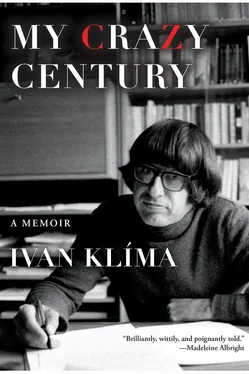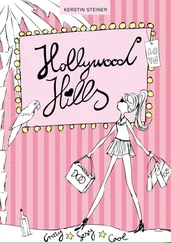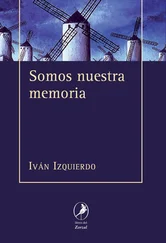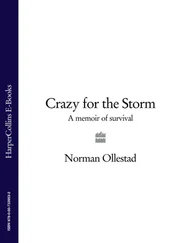The court had not yet even pronounced judgment, but writers began to join in with their condemnation. One of their articles, “No, They Are Not People,” recalled court reporting before the war.
During trials of the most serious and hardened scoundrels, I have never encountered such figures as I saw in the courtroom during the antistate conspiracy ring led by Rudolf Slánský. . I remember the faces of robbers, safecrackers, and murderers that I saw in the courtroom, and I must say. . yes: these fourteen accused monsters are not people!
A class-conscious poet who was present in the courtroom added his characterization of the accused: Here before us sits abomination embodied in living creatures who were at one time human beings.
There was something hideous about this language, as if they were writing about a group of SS murderers from the gas chambers.
The confessions of the accused and their witnesses filled a special edition of Rudé právo . Surprisingly, all of them repeated, with slight variation, the words of the prosecutor’s speech. One of them, André Simon, until recently a distinguished journalist, when asked how he judged his actions, replied in the words of the prosecutor:
I condemn myself as a criminal deserving the severest punishment. As a conspirator I am responsible for every deed and crime of each member of our conspiracy ring. I am of Jewish heritage. In which country does anti-Semitism grow freely? The United States and Great Britain. I was in contact with the intelligence services of these two countries. Which countries are reviving Nazism? The United States and Great Britain. I was in contact with the intelligence services of these two countries. In which country is there a law against racism and anti-Semitism? The Soviet Union. .
I was a writer. It has been said that a writer is an engineer of human souls. What kind of engineer was I when I poisoned souls? Such an engineer of souls belongs on the gallows.
In his concluding speech, the former secretary general of the Communist Party, designated as the leader of this antistate conspiratorial ring, stated:
I know that the sentence suggested by the state prosecutor will be fair to the utmost in light of all of the terrible crimes I have committed. I bear the main and most burdensome guilt of all the accused because I stood at the head of this antistate conspiratorial and espionage ring. It was I who created this ring, led its activities, and provided the instructions for all of my accomplices, which were not only my instructions, but primarily those of the American imperialists I served. They were instructions of betrayal and conspiracy, sabotage, subversion, and espionage. . The enemy within the ramparts is the most dangerous enemy of all because he can open the gates. I was an enemy within the Communist Party, within the Czechoslovak state, within the entire camp of peace. The state prosecutor is correct when he says I disguised myself. I had to disguise myself to remain as an enemy within the ramparts. . I said I was against imperialist war, but I was preparing this war, I was carrying out sabotage, planting and protecting spies who would have formed a fifth column in case of war. . I committed the most perfidious crimes possible. I know that for me there are no extenuating circumstances, no excuses, no clemency. . I deserve no other end to my felonious life than the end suggested by the state prosecutor.
This trial was much discussed in our department. How was it possible that they could write about the accused as criminals deserving the death penalty when the verdict had not even yet been announced? Didn’t that reflect a tampering with the law? Wasn’t it bewildering that the same thing had happened before in the Soviet Union? Almost everyone there who had fought for the revolution and then led the country was in turn revealed to be a traitor. It seemed ridiculous that traitors, spies, and saboteurs were at the head of government. It was also odd that right after someone was arrested, he confessed. Even the war criminals at Nuremberg tried to defend themselves; they had denied their guilt or at least tried to minimize it.
I was surprised by the strange phraseology of the accused. Would evil-intentioned enemies and spies use the term “camp of peace” for the Soviet Union and its allies and condemn American imperialism? Would they employ the language of speeches that had been only recently delivered? Even now that they were confessing, why didn’t they alter their choice of words? Was it possible they were speaking this way because they thought such an admission would be considered extenuating circumstances?
No extenuating circumstances were conceded. All but three were hanged.
At home Mother started to worry that they were going after Jews again. I waited for Father to object, to explain that communism was, after all, an international movement, and it condemned any kind of racism. But he remained silent.
When Mother was asleep he called me into the kitchen, where he worked and slept. He seemed to be considering whether or not to tell me why he’d called me in there. Then he said, “They’re after me too.”
I didn’t understand.
He explained that several weeks earlier, four engineers under his supervision were arrested. They were constructing new high-tension motors for a Polish power station.
I didn’t know what a high-tension motor was, but this clearly wasn’t the issue.
Sixty motors had been ordered, continued Father, but no one at the factory had had any experience. It was a new factory where untrained women made so many mistakes in production that most of the machines barely functioned at all. He tried pointing this out, but no one would listen. Everyone was in a hurry to fulfill the quota. Now the bosses obviously wanted to hold them, the designers, responsible. “I wanted to tell you,” he said, coming to the most important point, “if something happens to me, it’s up to you to take care of Mother and Jenda. You’re an adult and know very well that Mother cannot work.”
I protested, saying that nothing could possibly happen to him, since he hadn’t done anything wrong. Even if he’d miscalculated something, it wouldn’t be considered a crime.
Father nodded and then simply smiled sadly.
Essay: Revolution — Terror and Fear, p. 445
Attendance at specialized lectures was still voluntary. Participation in military preparation, however, was mandatory and strictly monitored; the only absences tolerated were those due to an illness officially confirmed by a doctor. The first military seminar dealt primarily with regulations and basic information about the composition and organization of the army. The smallest unit is the squad; three squads form a platoon; three platoons, and in some cases one motorized unit, make up a company. There were differences between infantry units and motorized or tank units. We were taught how ordinary soldiers were armed. Everything we were told was secret, and we were warned that any mention of this information outside class would bring us before a military court — because the enemy never slept. Even an apparently minor detail could be of crucial significance. An unbelievably half-witted lieutenant colonel explained that the moment we disclosed some seemingly unimportant detail, we became open to blackmail, and the enemy would demand more and more serious information (as if we had any). All the instructors were officers and emphasized vigilance and readiness to confront imperialist aggression, and a hatred of German revanchists and their American employers.
Our notebooks for this class were likewise stamped SECRET, and at the end of class they were collected and locked up in a vault in the military department.
I’m not sure how it happened, but once at the end of winter when I had just come back from class, I discovered that I’d forgotten to turn in my notebook and accidentally stuck it in my briefcase. Now this notebook, chock-full of strictly classified notes on military duties, the firing power of howitzers, and the effective range of antiquated antitank weapons, was at home, where I’d been instructed it had no business being. I was quite rattled and wondered whether I should run back to school and turn in the notebook. But they would probably start asking questions: Why had I taken it? What had I been doing with it all day? On the other hand, I could take it to the next class and turn it in as usual, and no one would be the wiser. So I shoved it in among my other notebooks in my dresser and paid it no further mind.
Читать дальше












